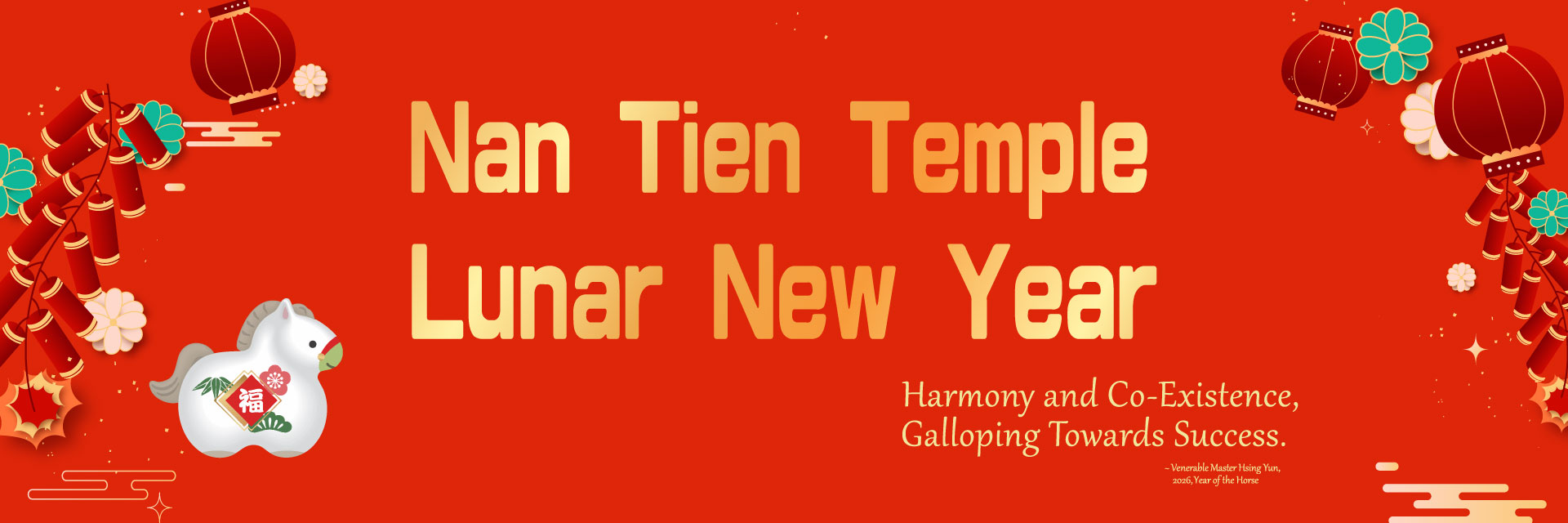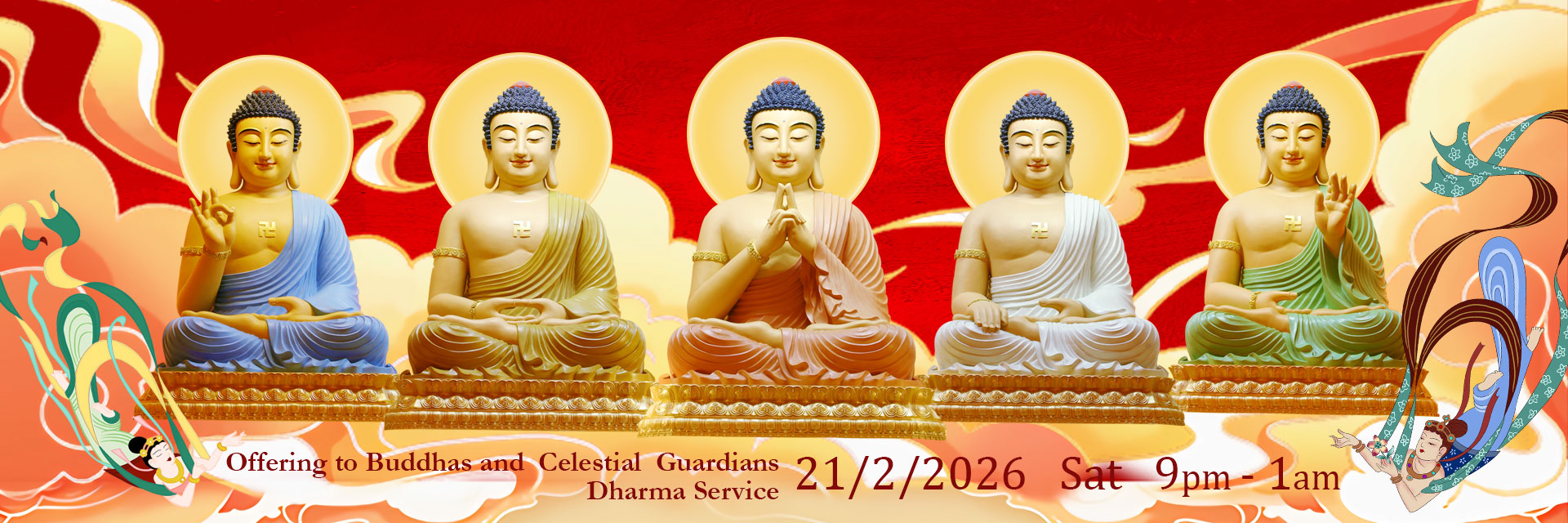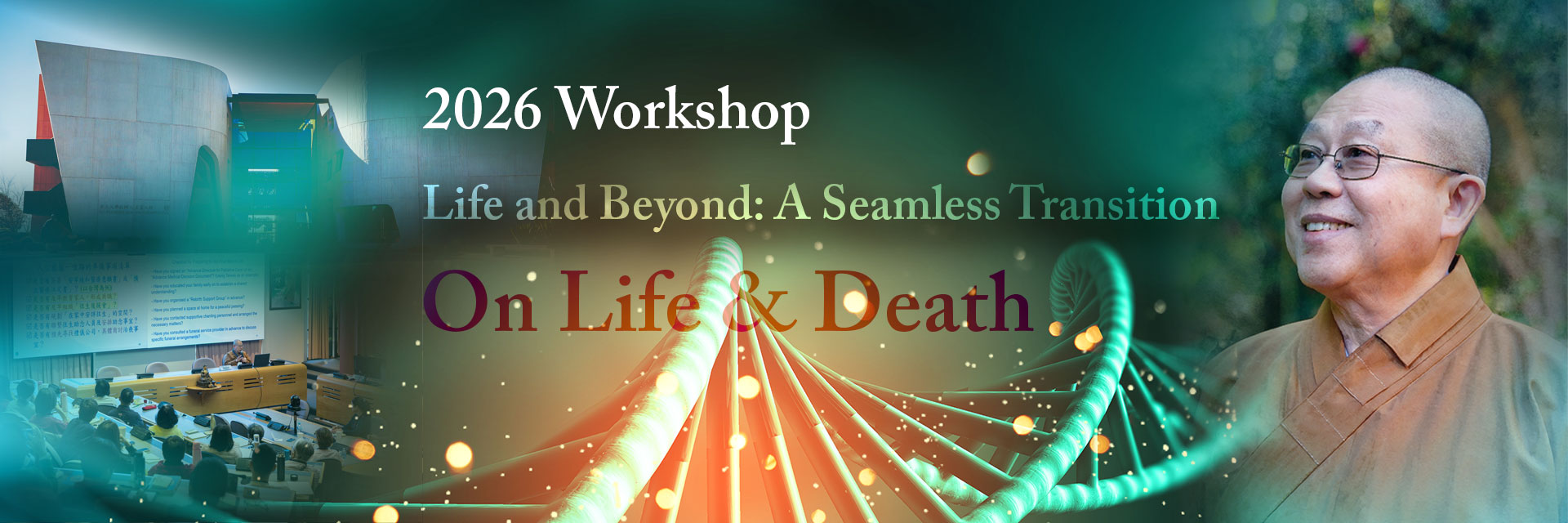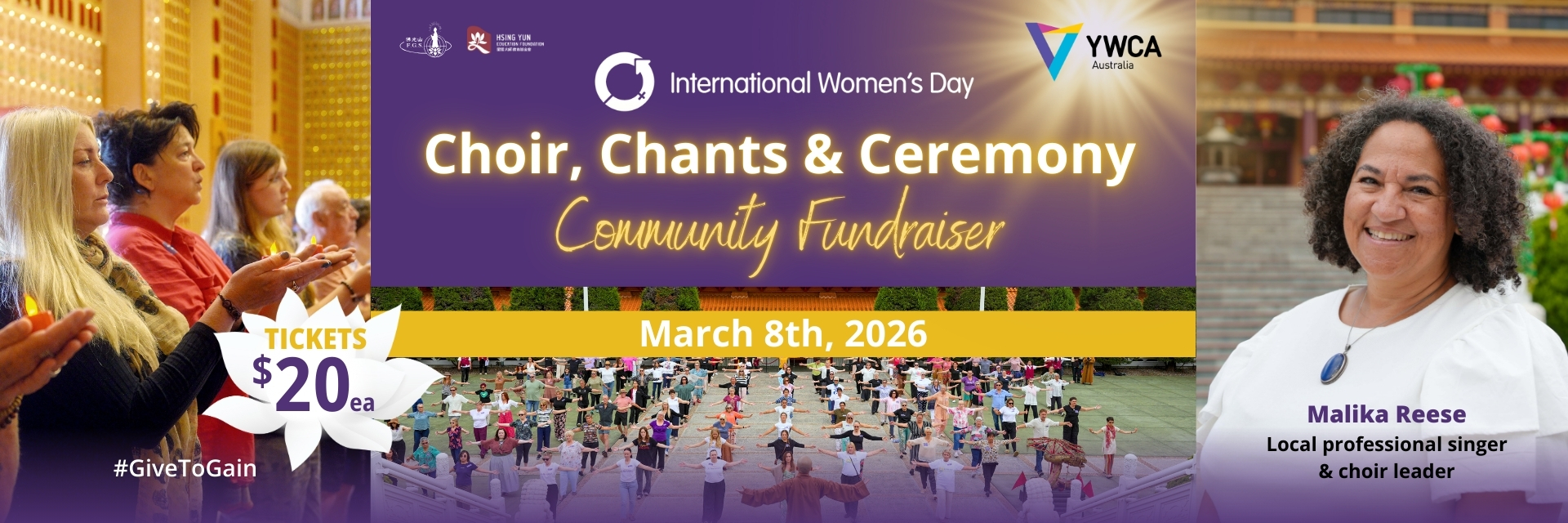A Chinese poet once said, “A life of seventy years is rare for a person, and I am fortunate enough to be seventy. During the first ten years of my life, I was young and naïve, and during the last ten years, I was old and senile. As for the remaining fifty years, half were spent at night in dreams and the remaining twenty-five in eating, drinking, fighting frustrations, grieving losses, and worrying over so many things.”
Even if we were to live many years and beyond the age of seventy, we could not live forever because death is inevitable. It is like depositing money in the bank, no matter how much we put in, there is no such thing as infinite deposits or withdrawals. There is a popular saying, “Every minute and second count” which coincides with Samantabhadra Bodhisattva’s teaching, “With the passing of each day, our lives become shorter. It is like fish getting less water; there is no happiness.” Therefore, we must value our lives and not easily waste even a minute or second.
Whenever we take a breath or check our pulse, we know that we are alive. The duration of our life is, thus, as long or as short as a heartbeat or a breath. How can we not make the best use of our limited life?
When a homemaker drives to the market for her grocery shopping, how should she spend her time in the car? When she is doing her chores, where should she rest her mind? When she is not preparing meals for her family, what should she do with her spare time? She could use the time in her car to plan household budgets and expenses or go over her mistakes and failures in order to come up with a way to improve herself. In her spare time, she could recite the Buddha’s name, so when the time comes, she could reach the Western Pure Land of Amitabha Buddha.
When a student rides the bus to and from school, he/she could use the time to draft an essay or think of a math problem. The time before class can be used for preview and the time after for review. If a student knows how to make better use of his/her time, he/she will have more time to study than those who do not.
It really does not matter if a person is a government employee, a schoolteacher, a politician, an economist, a white-collar worker or a laborer. What matters is that everyone should make time for a little hard thinking about what he/she had done right or wrong and what is gained or lost in preparation for the next move. We must appreciate that a few minutes of contemplation can contribute greatly to our future success.
If we could really make good use of our time, in our dreams we would think of what we had seen or heard in our waking moments. If we could really make better use of our time, we could not only improve the efficiency of our work but also prolong the duration of our life.








